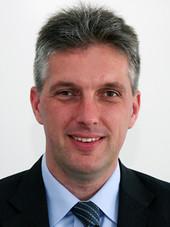Growing populism in Latin America? - Europabüro Brüssel
Fachkonferenz
Details
Growing populism in Latin America ?
The electoral victory of Evo Morales in Bolivia has put Latin America in the focus of attention of the media since the election of Hugo Chavez in Venezuela in early 1999. Erroneously compared with the election of socialist Michelle Bachelet in Chile, the Bolivian election was interpreted by the media as a symbol of a political turning point in the continent to the left.
By looking closer to the last and this year’s election results in Latin America, a more differentiated picture can be drawn. After elections in Bolivia, Chile, Costa Rica, El Salvador, Columbia, the Dominican Republic, Peru and Mexico, only three governments ( El Salvador, Columbia and Mexico) out of 12 with a clear free market economy agenda were confirmed in their work. The others felt the dissatisfaction of their voters and were replaced by more marked critical parties.
Moderate social democratic governments with a market orientated economic and social policy agenda as in Chile, Costa Rica, Dominican Republic and Brazil, and more left populist governments with a more interventionist economic policy with strong redistributive elements in Bolivia and Venezuela came into power.
More alarming as the current political landscape seems to be the increasing dissatisfaction and disapproval of the representative democratic system and its political institutions. Several public opinion polls like the “Latinobarometro” show a strong decline in trust in fundamental democratic institutions. Only 27% of the voters trust in the effective functioning of the juridical system, 20% in the representative role of parliament and 20% in the political party system. It will be a decisive question if populists can continue to profit from those poor supports for democratic institutions.
One big reason for populism's persistence is the extreme inequality in the region. That reduces the appeal of reform and increases that of charismatic leaders who promise a new world. Yet populism has done little to reduce income inequality.
Another driver of populism has been Latin America's wealth of natural resources. Many Latin Americans believe that their countries are rich, whereas in truth they are not. Populists blame poverty on corruption, on a grasping oligarchy or, on multinational oil or mining companies. This is a misdiagnosis. Countries develop through a mixture of the right policies and the right institutions.
Populism is full of contradictions. It is above all anti-elitist, but creates new elites. Populism brought mass politics to Latin America, but its relationship to democracy is ambivalent. Populists often pretend to combat corruption, but often engender more.
To discuss this essential question of a potential return of populism in Latin America, the Konrad-Adenauer-Foundation invited 6 high level representatives from Civil Society Organisations and directors of leading Think Tanks from 6 different LAC countries to draw a more realistic picture of the social, political and economic situation and their challenges and performances on their way towards a stable democracy in their countries. The workshop also should contribute to strengthen and to improve mutual understanding between the EU and Latin America.
The Konrad-Adenauer-Foundation, a worldwide operating political foundation with focus on the development of democracy, rule of law, good governance and social oriented market economy therefore organizes this Workshop to help deepening the dialogue and mutual understanding between our Latin American Partners and participants from the different European Institutions and organizations. We hope that the results can be of use for decision makers and experts of both sides.



